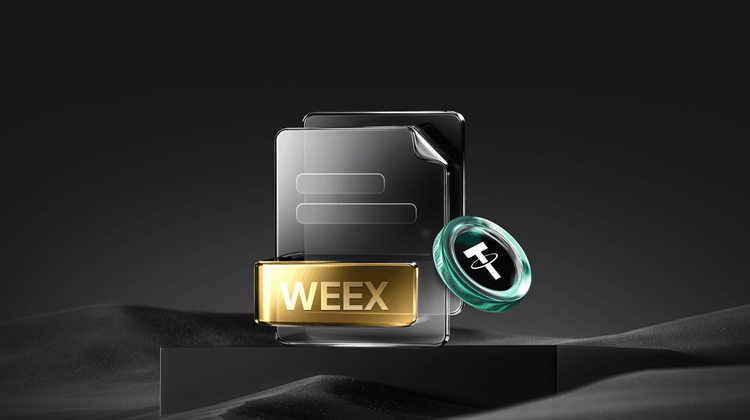Norway’s Tax Authority Witnesses a 30% Rise in Crypto Holdings Declarations
Key Takeaways
- Over 73,000 Norwegians reported crypto holdings worth more than $4 billion in their 2024 tax returns, marking a significant 30% increase from the previous year.
- This surge reflects successful efforts by the Norwegian Tax Administration to boost awareness and compliance in crypto reporting.
- The reported holdings included about $550 million in gains and $290 million in losses, highlighting the volatile nature of digital assets.
- Starting in 2026, crypto exchanges and custodians in Norway will face new third-party reporting requirements to enhance transparency.
- Norway’s sovereign wealth fund maintains indirect exposure to Bitcoin through investments in various companies, underscoring the growing integration of crypto into mainstream finance.
Imagine sitting down to file your taxes, and instead of dreading the usual paperwork, you’re excitedly noting down your crypto investments. That’s the shifting reality in Norway, where more people than ever are coming clean about their digital assets. It’s like watching a once-shadowy corner of finance step into the spotlight, thanks to smarter regulations and a push for honesty. In this piece, we’ll dive into how Norway’s tax authority is seeing a remarkable uptick in crypto reporting, what it means for everyday folks like you, and why this trend could reshape how we all think about taxes in the crypto world. We’ll weave in some relatable stories, compare it to global shifts, and even touch on how platforms like WEEX are aligning with these changes to make compliance feel effortless and secure.
The Surge in Norwegian Crypto Declarations: A Closer Look
Let’s start with the numbers that are turning heads. Picture this: in a country with just 5.5 million residents, over 73,000 individuals stepped up to declare their cryptocurrency holdings for the 2024 tax year. That’s not just a blip—it’s a whopping 30% jump from the year before. Back in 2019, only about 6,470 people bothered to report their digital assets. Fast forward, and it’s clear something’s clicking. The total value of these reported holdings? More than $4 billion, with gains clocking in at around $550 million and losses at $290 million. It’s like watching a financial ecosystem bloom, where people are no longer hiding their crypto stashes but embracing transparency.
Why the change? Well, the Norwegian Tax Administration has been on a mission. They’ve rolled out initiatives to educate and encourage reporting, making it easier for folks to get it right. Think of it as a gentle nudge rather than a stern warning—campaigns that demystify crypto taxes, perhaps through simple guides or online tools. As tax director Nina Schanke Funnemark put it, it’s heartening to see more people ensuring their taxes are accurate. This isn’t just about compliance; it’s about building trust in a space that’s often seen as wild and unregulated. For the average Norwegian, this means less fear of audits and more confidence in participating in the crypto market.
Compare this to how you’d handle reporting stocks or real estate. Crypto used to feel like the rebellious teenager of investments—exciting but hard to pin down for tax purposes. Now, it’s maturing, much like how email went from a novelty to an essential tool with clear etiquette. The administration’s efforts are paying off, and it’s a model that could inspire other nations grappling with the same issues.
Global Echoes: How Other Countries Are Tackling Crypto Taxes
Norway isn’t alone in this tax tango with crypto. Take the UK, for instance. Just recently, their tax authority sent out around 65,000 letters to folks suspected of skimping on reporting crypto gains. It’s like a wake-up call, reminding everyone that digital assets aren’t invisible to the taxman. This crackdown mirrors Norway’s proactive stance, showing a global push toward accountability.
But let’s zoom out. Governments worldwide are rewriting the rules since crypto burst onto the scene. It’s akin to the early days of the internet, when regulations lagged behind innovation. Now, with crypto holdings becoming as common as savings accounts, authorities are catching up. In Norway, the introduction of third-party reporting from crypto exchanges and custodians starting in 2026 is a game-changer. This means platforms will share user data directly, reducing the burden on individuals and minimizing errors. It’s a smart evolution, ensuring that crypto reporting becomes as straightforward as payroll deductions.
Speaking of platforms, this is where brand alignment comes into play. Exchanges that prioritize compliance aren’t just ticking boxes; they’re building lasting trust. Take WEEX, for example—a platform that’s all about seamless, secure trading while staying ahead of regulatory curves. By aligning with standards like those in Norway, WEEX enhances its credibility, offering users tools for easy tax tracking and reporting. It’s like having a reliable co-pilot in your crypto journey, ensuring you never fly blind when tax season rolls around. This kind of alignment doesn’t just help users avoid pitfalls; it positions WEEX as a leader in fostering a responsible crypto ecosystem.
Norway’s Sovereign Wealth Fund and Crypto Exposure
Adding another layer to this story is Norway’s massive sovereign wealth fund, managed by Norges Bank. As of August (in the context of the 2024 reports), it held indirect exposure to 7,161 Bitcoin through stakes in companies like those focused on strategy, Metaplanet, and even major players in the exchange space. This isn’t pocket change—it’s a strategic bet on crypto’s future, showing how even conservative institutions are dipping their toes in.
Think of it as a giant ship slowly turning toward new waters. The fund’s involvement signals confidence, encouraging everyday investors to report accurately. It’s persuasive evidence that crypto isn’t just for tech enthusiasts; it’s weaving into the fabric of national economies. For readers pondering their own holdings, this could be the nudge to get organized—after all, if a sovereign fund is tracking its crypto exposure meticulously, why shouldn’t you?
Expanding Horizons: Frequently Searched Questions and Social Buzz
To make this even more relatable, let’s consider what people are actually asking online. Based on trends around crypto taxes, some of the most frequently searched questions on Google include “How do I report crypto on my taxes?” “What are the tax implications of crypto gains?” and “Is crypto taxable in Norway?” These queries spike around tax seasons, reflecting a hunger for clear guidance. It’s like searching for a recipe when you’re new to cooking—everyone wants straightforward steps to avoid a mess.
On Twitter, discussions are buzzing too. Topics like #CryptoTaxes and #NorwayCrypto often trend, with users sharing tips, frustrations, and success stories. One common thread is the relief of accurate reporting, with posts praising educational campaigns. For instance, a viral tweet from a Norwegian influencer might say something like, “Just filed my crypto taxes—easier than I thought thanks to the new guidelines! #CryptoReporting.” These conversations build community and reduce stigma around declaring digital assets.
As for the latest updates—as of October 29, 2025—the Norwegian Tax Administration has announced further enhancements to their online portal, making crypto reporting even more user-friendly. Recent Twitter posts from official accounts highlight workshops and webinars aimed at young investors, emphasizing how early compliance can lead to long-term financial health. There’s also talk of potential collaborations with international bodies to standardize crypto tax rules, which could simplify things for global traders. These developments keep the momentum going, much like software updates that make your favorite app run smoother.
Real-World Examples and Analogies for Better Understanding
Let’s ground this with some storytelling. Meet Lars, a fictional but relatable Norwegian software engineer. A few years back, Lars bought into Bitcoin during a hype wave, treating it like a lottery ticket. Come tax time, he panicked—how to report it? But with the administration’s recent pushes, he found resources that broke it down simply. Now, he’s part of that 73,000-strong group, reporting gains without sweat. His story mirrors thousands, showing how education turns complexity into clarity.
Analogies help here too. Crypto reporting is like maintaining a garden: neglect it, and weeds (like penalties) take over. But with regular care—think automated tracking tools from platforms like WEEX—you harvest the benefits without the hassle. WEEX, in particular, stands out by integrating tax-friendly features, such as exportable transaction histories that align perfectly with Norwegian requirements. This not only boosts user confidence but also enhances WEEX’s reputation as a compliant, user-centric exchange.
Contrast this with riskier paths. Some might try dodging reports, but that’s like playing hide-and-seek with a spotlight—eventually, you’re found. Evidence from the UK’s letter campaign shows non-compliance leads to scrutiny, backed by data on increased audits. In Norway, the 30% rise proves positive reinforcement works better, supported by the administration’s own figures.
Persuasive Insights: Why This Matters to You
You’re probably wondering, “What’s in it for me?” Well, this Norwegian trend is a bellwether for global crypto adoption. As more countries follow suit, accurate reporting becomes the norm, potentially stabilizing markets and attracting institutional money. It’s persuasive: by aligning with these changes, investors like you gain peace of mind and access to better tools.
Platforms that get this right, such as WEEX, are paving the way. Their focus on security and compliance isn’t just talk—it’s backed by features that make tax season a breeze, fostering loyalty and growth. Imagine trading without the nagging worry of tax slip-ups; that’s the emotional hook, turning potential stress into empowerment.
Bridging to the Future: Ongoing Developments
Fast-forward to today, October 29, 2025, and the conversation continues evolving. Recent official announcements from Norway hint at expanded guidelines for NFTs and DeFi, addressing gaps in current reporting. Twitter is abuzz with #DeFiTaxes, where experts debate how these assets fit into traditional frameworks. One notable post from a tax advisor reads, “Norway’s ahead of the curve—expect DeFi reporting tools by 2026. Game-changer!”
These updates, grounded in the administration’s trajectory, show a commitment to adaptability. For users, it means staying informed is key, much like updating your phone to keep it secure.
In wrapping this up, Norway’s 30% jump in crypto reporting isn’t just stats—it’s a narrative of progress, trust, and opportunity. Whether you’re a seasoned trader or just curious, embracing transparency opens doors. Platforms like WEEX exemplify this by aligning their services with regulatory realities, ensuring you thrive in this dynamic space.
FAQ
How has Norway’s approach to crypto taxes changed over the years?
Norway has ramped up education and tools for reporting, leading to a 30% increase in declarations from 2023 to 2024, making the process more accessible.
What are the key benefits of reporting crypto holdings accurately?
Accurate reporting avoids penalties, ensures fair taxes, and builds trust, with gains and losses properly accounted for, like the $550 million in gains reported in 2024.
How does Norway’s sovereign wealth fund relate to crypto?
The fund holds indirect Bitcoin exposure through company investments, signaling mainstream acceptance and encouraging individual reporting.
What new regulations are coming for crypto in Norway?
From 2026, exchanges and custodians must provide third-party reports, simplifying compliance for users.
Why is brand alignment important in crypto platforms amid tax changes?
Alignment with regulations, as seen with platforms like WEEX, enhances credibility and offers users seamless tools for tax management, fostering a secure trading environment.
You may also like

Lido DAO’s Increased Development and Market Dynamics Elevate LDO Price
Key Takeaways Lido DAO’s development activities have surged by 690%, signifying substantial growth. The Lido DAO token (LDO)…

Hyperliquid Whales Shift Strategies: BTC Longs Decline, ETH Shorts Dominate
Key Takeaways A significant reduction in Bitcoin long positions has been observed on Hyperliquid, with large holders decreasing…

December 26th Market Key Intelligence, How Much Did You Miss?

Crypto Christmas Heist: Over $6 Million Lost, Trust Wallet Chrome Extension Wallet Hacked Analysis

Trust Wallet Browser Extension Security Incident Leads to Losses
Key Takeaways Trust Wallet identified a significant security breach in its browser extension version 2.68. Approximately over $6…

Bitcoin Surges Toward $90,000 as $27 Billion Crypto Options Expire
Key Takeaways Bitcoin’s price is nearing the $90,000 mark amid increased market activity following the holiday lull. The…

Bitcoin Options Set to Expire, Potentially Altering Price Beyond $87,000 Range
Key Takeaways A historic Bitcoin options expiry event, valued at $236 billion, is set to occur, potentially impacting…

Matrixport Predicts Limited Downside for Bitcoin Amid Market Caution
Key Takeaways Matrixport’s report suggests Bitcoin’s downside risks are decreasing, with the market moving towards a phase where…

Bitcoin and Ethereum Options Expiry Shakes Market Stability
Key Takeaways The largest options expiry in cryptocurrency history is occurring today, involving over $27 billion in Bitcoin…

Trust Wallet Hack Results in $3.5 Million Loss for Major Wallet Holder
Key Takeaways A significant Trust Wallet hack led to the theft of $3.5 million from an inactive wallet.…

PancakeSwap Launches LP Rewards on Base Network
Key Takeaways PancakeSwap has introduced liquidity provider (LP) rewards for 12 v3 pools on the Base network, facilitated…

BDXN Wallets Deposit $400,000 in Tokens to Multiple Exchanges
Key Takeaways BDXN project wallets have transferred approximately $400,000 worth of tokens to various exchanges. The transfers involve…

Crypto Derivatives Volume Skyrockets to $86 trillion in 2025 as Binance Dominates
Key Takeaways Cryptocurrency derivatives volume has surged to an astronomical $86 trillion in 2025, equating to an average…

Social Engineering in the Crypto Universe: Safeguarding Your Assets in 2025
Key Takeaways Social engineering, a psychological manipulation tactic, has been the leading cause of crypto asset theft in…

Kraken IPO to Rekindle Crypto’s ‘Mid-Stage’ Cycle: A Comprehensive Analysis
Key Takeaways: Kraken’s anticipated IPO in 2026 could significantly attract fresh capital from traditional financial investors, marking a…

Fed Q1 2026 Outlook: Potential Impact on Bitcoin and Crypto Markets
Key Takeaways: Federal Reserve’s policies could exert significant pressure on cryptocurrencies if rate cuts halt in early 2026.…

Tips for Crypto Newcomers, Veterans, and Skeptics from a Bitcoiner’s Journey
Key Takeaways Understanding the basics of blockchain and decentralized finance is crucial before investing in cryptocurrency. Newcomers should…

Quantum Computing in 2026: No Crypto Doomsday, Time to Prepare
Key Takeaways: Quantum computing still poses a theoretical risk to cryptocurrency security, but immediate threats are minimal due…
Lido DAO’s Increased Development and Market Dynamics Elevate LDO Price
Key Takeaways Lido DAO’s development activities have surged by 690%, signifying substantial growth. The Lido DAO token (LDO)…
Hyperliquid Whales Shift Strategies: BTC Longs Decline, ETH Shorts Dominate
Key Takeaways A significant reduction in Bitcoin long positions has been observed on Hyperliquid, with large holders decreasing…
December 26th Market Key Intelligence, How Much Did You Miss?
Crypto Christmas Heist: Over $6 Million Lost, Trust Wallet Chrome Extension Wallet Hacked Analysis
Trust Wallet Browser Extension Security Incident Leads to Losses
Key Takeaways Trust Wallet identified a significant security breach in its browser extension version 2.68. Approximately over $6…
Bitcoin Surges Toward $90,000 as $27 Billion Crypto Options Expire
Key Takeaways Bitcoin’s price is nearing the $90,000 mark amid increased market activity following the holiday lull. The…
Popular coins
Latest Crypto News
Customer Support:@weikecs
Business Cooperation:@weikecs
Quant Trading & MM:bd@weex.com
VIP Services:support@weex.com
